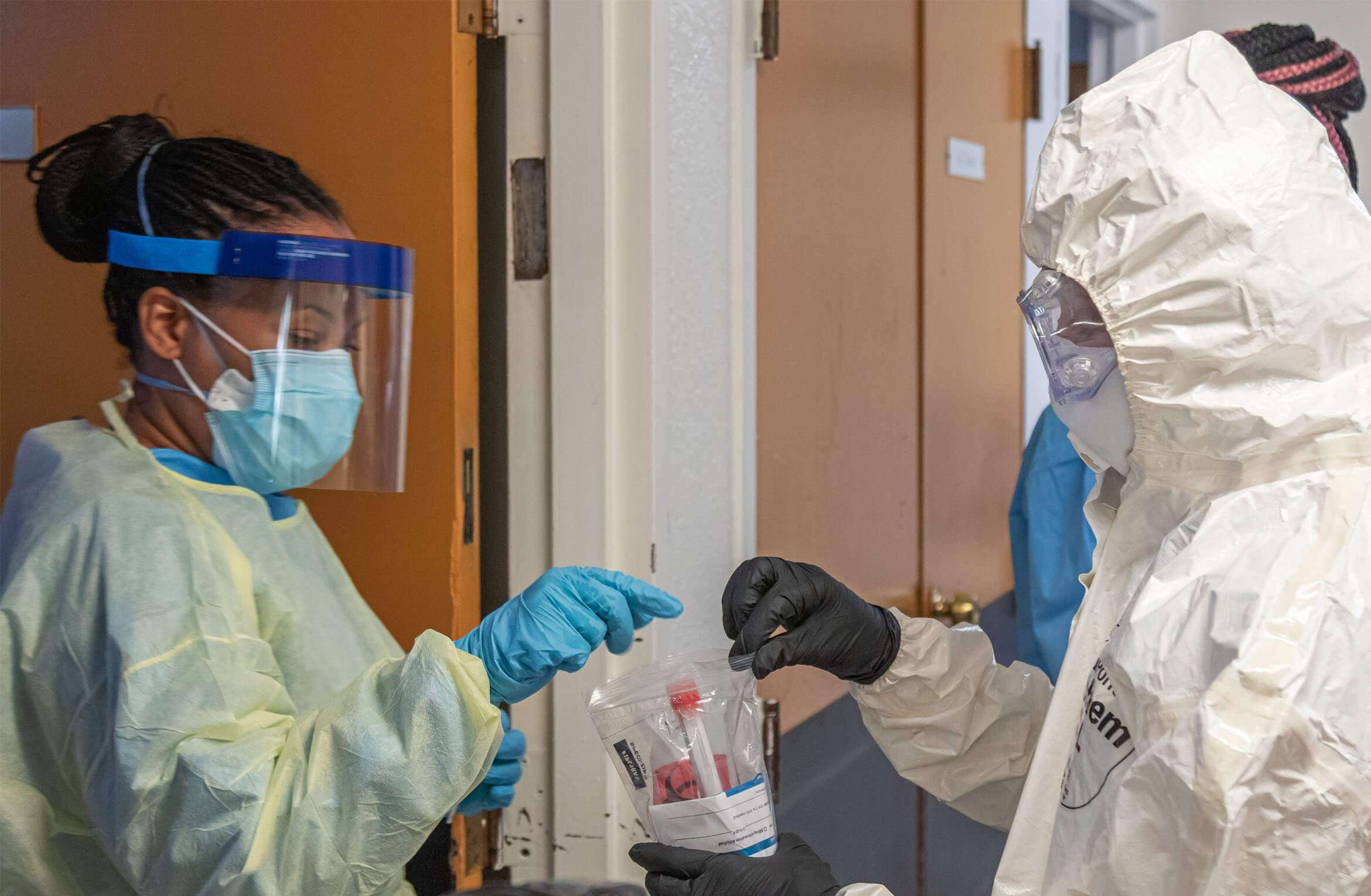New research provides evidence that working memory and fluid intelligence are associated with engaging in social distancing in the early stages of the coronavirus pandemic. The new study has been published in the Proceedings of the National Academy of Sciences.
On March 11th, 2020, the World Health Organization declared the outbreak of the novel coronavirus SARS‐CoV‐2 to be a global pandemic. Governments around the world urged people to follow preventive health measures such as frequent hand washing and physical distancing. But not everyone abided by the safety guidelines.
“At the moment, successful containment of the COVID-19 outbreak critically relies on people’s voluntary compliance with social distancing guidelines. However, there is widespread non-compliance in our society, especially during the early stage of this pandemic (and more recently after reopening),” said study author Weiwei Zhang, a postdoctoral research fellow at the National Institute of Neurological Disorders and Stroke.
The researcher noted that there have been numerous media reports about Americans failing to physically distance themselves from one another in public spaces.
“As a researcher in cognitive psychology, I feel that it is our duty to figure out why some people follow the developing norm of social distancing while others ignore it. Addressing this issue may help mitigate the current public health crisis due to the COVID-19,” Zhang said.
In two studies, the researchers surveyed 850 U.S. residents between March 13 and March 25, 2020 — the first two weeks following the U.S. presidential declaration of a national emergency about the COVID-19 pandemic. In addition to collecting demographic information and assessing social distancing compliance, the surveys included assessments of working memory, personality, mood, and fluid intelligence.
Zhang and his colleagues found that those with better working memory capacity were more likely to indicate that they had followed social distancing guidelines, such as not shaking hands and avoiding social gatherings.
“Our findings reveal a novel cognitive root of social distancing compliance during the early stage of the COVID-19 pandemic,” Zhang said.
The researchers also found that higher levels of fluid intelligence and agreeableness were associated with greater social distancing compliance. But the link between working memory and social distancing held even after controlling for these factors and others.
“The decision of whether or not to follow social distancing guidelines is a difficult one, especially when there is a conflict between the societal benefits (e.g., prevent staining public health resources) and personal costs (e.g., lost in social connection and financial challenges). This decision critically relies on our mental capacity in retaining multiple pieces of potentially conflicting information in our head, which is referred to as working memory capacity,” Zhang told PsyPost.
“Realizing this cognitive bottleneck, the bottom line is that we should not rely on people’s habitual following of a norm because social distancing is not yet adequately established in U.S. society. Policy makers should develop strategies to aid people’s decision by making information or debriefing materials succinct, concise, and brief.”
As with all research, the study comes with a few caveats.
“We expect that the contribution of working memory will decline as new social norms, such as wearing a mask or socially distancing, are acquired by the U.S. society over time,” Zhang said.
“Our observations are correlational in nature. It remains to be established whether or not certain strategies to break the cognitive bottleneck, such as working memory training and translational brain stimulation, could reduce social distancing non-compliance and subsequently mitigate a public health crisis.”
The study, “Working memory capacity predicts individual differences in social-distancing compliance during the COVID-19 pandemic in the United States“, was authored by Weizhen Xie, Stephen Campbell, and Weiwei Zhang.

NjGTSilver on July 11st, 2020 at 16:47 UTC »
Is this just a fancy way of saying “dumb people do dumb things”?
Av0cad0sAreGreat on July 11st, 2020 at 15:54 UTC »
This study does not claim a causal relationship between "stupidity" and mask non-compliance. It finds a correlation between working memory and fluid intelligence and mask compliance in a sample population of 850 Americans. Working memory is a relative measurement of how many things a person can remember at once. Fluid intelligence is a relative measurement of problem solving ability. There are other forms of intelligence, and just because a person scores relatively low on these does not make them "stupid", but it does make them more likely to not wear a mask. According to the article, the researchers are hopeful that exercises that improve people's working memory may also help to improve mask compliance, and therefore improve public health.
TittyMongoose42 on July 11st, 2020 at 15:41 UTC »
This may be an unpopular thing to point out, but in their Supplemental, it becomes clear that at no point was political affiliation asked, merely normal self report data (e.g. gender, education level, income, and ethnicity). Everyone who's trying to make this about "hurr durr conservatives dumb," you're just plain wrong. The majority of their study pool was college educated, white, average earners.
It's also worth pointing out that this isn't causation.
Take all of this with a grain of salt. Working Memory is often completely non-correlated to IQ and is to some extent determined by genes.